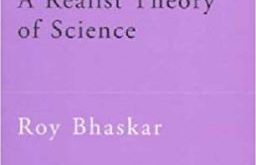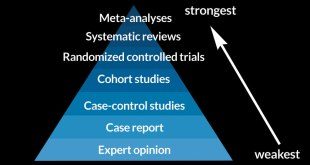John von Neumann on mathematics
Read More »My ten favourite science books
My ten favourite science books • Bhaskar, Roy (1978). A realist theory of science • Cartwright, Nancy (2007). Hunting causes and using them • Freedman, David (2010). Statistical models and causal inferences • Georgescu-Roegen, Nicholas (1971). The Entropy Law and the Economic Process • Harré, Rom (1960). An introduction to the logic of the sciences • Keynes, John Maynard (1936). The General Theory • Lawson, Tony (1997). Economics and reality • Lipton,...
Read More »The relationship between logic and truth
The relationship between logic and truth [embedded content] To be ‘analytical’ and ‘logical’ is something most people find recommendable. These words have a positive connotation. Scientists think deeper than most other people because they use ‘logical’ and ‘analytical’ methods. In dictionaries, logic is often defined as “reasoning conducted or assessed according to strict principles of validity” and ‘analysis’ as having to do with “breaking something...
Read More »Why we need Big Theories
Why we need Big Theories [embedded content]
Read More »Judea Pearl and interventionist causal models (wonkish)
Judea Pearl and interventionist causal models (wonkish) As X’s effect on some other variable in the system S depends on there being a possible intervention on X, and the possibility of an intervention in turn depends on the modularity of S, it is a necessary condition for something to be a cause that the system in which it is a cause is modular with respect to that factor. The requirement that all systems are modular with respect to their causes can, in a...
Read More »Critical realism
What properties do societies possess that might make them possible objects of knowledge for us? My strategy in developing an answer to this question will be effectively based on a pincer movement. But in deploying the pincer I shall concentrate first on the ontological question of the properties that societies possess, before shifting to the epistemological question of how these properties make them possible objects of knowledge for us. This is not an arbitrary order of...
Read More »The logic of scientific discovery
The logic of scientific discovery It is because we are material things, possessed of the senses of sight and touch, that we accord priority in verifying existential claims to changes in material things. But scientists posit for these changes both continuants and causes, some of which are necessarily unperceivable. It is true that ‘that a flash or a bang occurs does not entail that anything flashes or bangs. “Let there be light” does not mean “let something...
Read More »Postmodern mumbo jumbo
Fyra viktiga drag är gemensamma för de olika rörelserna: Centrala idéer förklaras inte. Grunderna för en övertygelse anges inte. Framställningen av läran har en språklig stereotypi … När det gäller åberopandet av lärofäder råder samma stereotypi — ett begränsat antal namn återkommer. Heidegger, Foucault, och Derrida kommer tillbaka, åter och åter … Till de fyra punkterna vill jag emellertid … lägga till en femte: 5. Vederbörande har inte något väsentligen nytt att...
Read More »RCTs — the danger of imposing a hierarchy of evidence
RCTs — the danger of imposing a hierarchy of evidence The imposition of a hierarchy of evidence is both dangerous and unscientific. Dangerous because it automatically discards evidence that may need to be considered, evidence that might be critical. Evidence from an RCT gets counted even if when the population it covers is very different from the population where it is to be used, if it has only a handful of observations, if many subjects dropped out or...
Read More »Understanding and misunderstanding RCTs
[embedded content] Great lecture by one of my favourite philosophers of science. Among other things, Nancy Cartwright underscores the problem many ‘randomistas’ end up with when underestimating heterogeneity and interaction is not only an external validity problem when trying to ‘export’ regression results to different times or different target populations. It is also often an internal problem to the millions of regression estimates that economists produce every year....
Read More » Heterodox
Heterodox








